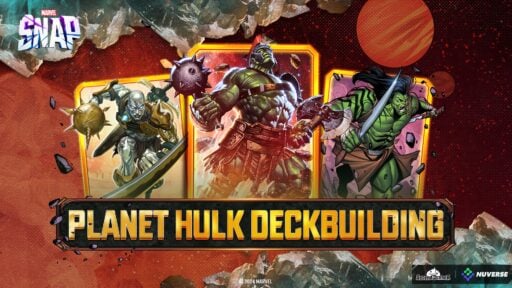Mobile strategy games have become an integral part of our digital culture, capturing the attention of gamers worldwide. With games like ‘Clash Royale,’ players are engrossed not just by captivating graphics and engaging storylines but also by the intricate strategies and decision-making processes required to excel. As these games grow in popularity, an intriguing question emerges: can playing strategy games like ‘Clash Royale’ have a meaningful impact on cognitive abilities, particularly critical thinking, which is so crucial for college students?
This article dives into the mechanics of these games, probing their potential influence on players’ critical thinking skills. The link between strategy games and cognitive skills isn’t just a fascinating subject for game enthusiasts, but it’s also becoming increasingly relevant for educators and academic researchers looking to innovate and evolve teaching methods.
As college students frequently search for resources that can help them enhance their thinking skills and academic prowess – often asking professionals to “write my research paper on WritePaper” – could strategy games become an unconventional but effective tool in their academic toolkit?

The Mechanics of Critical Thinking
Critical thinking is an invaluable skill, especially at the college level, where students are expected to analyze, evaluate, and synthesize information at a much deeper level than before. The foundation of critical thinking lies in several key components:
- Analysis of information;
- Interpretation of data or scenarios;
- Making inferences based on the information available;
- Evaluating the validity and relevance of sources;
- Offering clear explanations;
- Self-regulation in terms of monitoring one’s own thought processes.
In essence, critical thinking is the ability to think clearly and rationally, understanding the logical connection between ideas. It’s about being active (not reactive) in your learning processes and analyzing the information critically. Just as in strategy games, where players constantly evaluate their position, predict their opponent’s moves, and adjust their tactics accordingly, critical thinking in academia requires a similar set of analytical and predictive skills.
Strategy Games and Critical Thinking
It’s clear that both strategy games and academic exercises rely heavily on the player or student’s ability to think critically. But how exactly does the gameplay in titles like ‘Clash Royale’ mirror the academic process of critical thinking? Let’s dive deeper.
Foresight and Planning
Just as in a calculus problem where one has to anticipate multiple steps ahead to solve an equation, ‘Clash Royale’ players must predict the progression of the battle based on their and their opponent’s moves. Each decision, be it deploying a troop or holding back for a bigger combo play, requires foresight.
In-Game Decision-Making Parallels
Real-world problem-solving often necessitates weighing pros and cons and considering potential outcomes of each decision. Similarly, in ‘Clash Royale,’ every action has a reaction. Players must decide in real-time which strategies will yield the best outcome, a skill that can be analogous to academic scenarios like debating or resolving complex problems.
Logical Analysis
A player, upon seeing certain cards played by the opponent, analyzes patterns and makes educated guesses on what might come next. This mirrors the academic exercise of examining data or a set of conditions and deducing logical conclusions.
Gaming and Cognitive Enhancement
As intriguing as these parallels between gaming and critical thinking are, it’s essential to anchor our assumptions in empirical evidence. Over the past few years, several studies have probed the cognitive impact of gaming.
One such research found that strategy games, in particular, have a positive effect on cognitive flexibility, problem-solving abilities, and even spatial awareness. Another study focusing on older adults revealed that those who engaged in strategic gameplay demonstrated improved memory and cognitive functions compared to those who did not.
However, not all games yield the same results. It’s crucial to distinguish between games that genuinely challenge the mind and those that are mere time-fillers. Moreover, while some studies have found positive correlations, they also stress the importance of moderation. Overindulgence in gaming can lead to negative outcomes, such as reduced physical activity or disrupted sleep patterns.
While there’s a clear indication that strategy games can bolster certain cognitive functions, it’s equally important to approach these findings with a critical mind and acknowledge the potential limitations and nuances of each study.
Strategy Games for Educational Advancement
The bridge between the virtual world of strategy gaming and real-world academics is becoming increasingly apparent. But how can educators and institutions leverage this connection for the betterment of students?
Game-Based Learning
By introducing strategy games into the curriculum, educators can tap into an engaging medium that students already resonate with. Such games can serve as supplementary tools, enhancing topics like logic, statistics, or probability. In more advanced courses, games can simulate complex scenarios, providing hands-on experience in decision-making and strategic planning.
Case Studies
Some educational institutions have already begun exploring the potential of strategy games. For instance, using ‘Clash Royale’ to teach probability by analyzing the likelihood of drawing specific card combinations, or utilizing city-building strategy games to enhance students’ understanding of urban planning and resource management.
Future of EdTech
With the rise of educational technology, there’s ample scope for developing strategy games tailored explicitly for educational outcomes. Customizable scenarios, real-time feedback, and analytics can help both students and educators track progress and hone critical thinking skills more efficiently.
Critiques and Concerns
As promising as the integration of strategy games in academia sounds, there are genuine concerns to address.
Gaming Addiction
One of the significant worries revolves around the potential for gaming addiction. When does constructive game-based learning tip into unhealthy binge-playing? It’s a delicate balance that educators and students alike need to be mindful of.
Substituting Traditional Learning
Relying too heavily on games might detract from the fundamentals. Books, hands-on experiments, and traditional teaching methods still have undeniable value, and games should complement, not replace, these methods.
Effectiveness Variability
Not every student may resonate with game-based learning. While some might find it engaging and beneficial, others could find it distracting or less effective than traditional methods.
Final Thoughts
As students strive to stay competitive in the academic world, seeking out resources ranging from the best admission essay writing service to interactive learning platforms, the role of unconventional tools, like strategy games, becomes even more intriguing. These games, with their intricate mechanics and decision-making requirements, undeniably mirror many aspects of critical thinking essential for academia.
However, like all tools, the efficacy of strategy games in enhancing critical thinking hinges on their judicious use. Embracing them as supplementary educational resources, balancing game-time with traditional learning, and continuously evaluating their impact can ensure that the world of ‘Clash Royale’ and the halls of academia harmoniously coexist, fostering a new generation of strategic thinkers.






